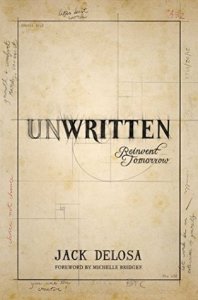How I Built This by Guy Raz
“Award-winning journalist and NPR host Guy Raz has interviewed more than 200 highly successful entrepreneurs to uncover amazing true stories… In How I Built This, he shares tips for every entrepreneur’s journey: from the early days of formulating your idea, to raising money and recruiting employees, to fending off competitors, to finally paying yourself a real salary. This is a must-read for anyone who has ever dreamed of starting their own business or wondered how trailblazing entrepreneurs made their own dreams a reality.” I read this as an audiobook and it was absolutely amazing! It helped that the author read it as the way he told the stories was just brilliant. It’s jam packed full of founder/CEO/business owners stories of how they got where they are today – the good, the bad, the boring and the ugly parts. A lot of business books only tell the success stories. I love that this book didn’t just show the successes but was just the truth of how they got there.
I read this as an audiobook and it was absolutely amazing! It helped that the author read it as the way he told the stories was just brilliant. It’s jam packed full of founder/CEO/business owners stories of how they got where they are today – the good, the bad, the boring and the ugly parts. A lot of business books only tell the success stories. I love that this book didn’t just show the successes but was just the truth of how they got there.
The author did an absolutely amazing job of the story telling, which in itself makes the book. It is structured in chapters where each chapter has a point that those stories relate to, but it’s hardly a theory book. It’s the stories told in really awesome ways that keep you on the edge of your seat. If you are an entrepreneur or in business, you will find something there that is relatable to you.
The author does run a podcast, but is not like other authors that spend half the book selling their business product to you. His podcast business is relatable because he would be unable to write this book without it, but it’s not sold to you.
5 stars normally means a reread. But I’m unsure if I need to hear the stories again. It was totally still deserving of 5 stars though! If business is what you want to do in your life – it’s a must-read for daily inspiration and small business tips that make a difference.









 This book was just average and just another strategy management book. The author says they are bringing something different to the business world but it still came across as the same as other similar books on the topic.
This book was just average and just another strategy management book. The author says they are bringing something different to the business world but it still came across as the same as other similar books on the topic.
 This book really dives into all the insights of habits and leaves pretty much nothing out. It gives an in depth understanding of how habits are formed and how to start new habits. My only downside was that it had a lot of tips to create new habits but not a lot on changing old ones.
This book really dives into all the insights of habits and leaves pretty much nothing out. It gives an in depth understanding of how habits are formed and how to start new habits. My only downside was that it had a lot of tips to create new habits but not a lot on changing old ones.
 I listened to this as an audio book. It was just average. It wasn’t exactly what I thought it would be. I expected a lot more modern tips and tricks such as working from home apps, software, and things to assist in the modern age. I guess the author did have outsourcing in there in a general form which was nice. But instead, pretty much all of the tips and insights have been discussed before and I didn’t get anything new from it. For example, one point was the the urgent/important quadrants of using your time.
I listened to this as an audio book. It was just average. It wasn’t exactly what I thought it would be. I expected a lot more modern tips and tricks such as working from home apps, software, and things to assist in the modern age. I guess the author did have outsourcing in there in a general form which was nice. But instead, pretty much all of the tips and insights have been discussed before and I didn’t get anything new from it. For example, one point was the the urgent/important quadrants of using your time.

 Let me set you straight from the beginning. I read this as an audiobook and it was pretty average. There is nothing new on offer in this book. I had to force myself to keep listening – I didn’t even really want to finish it because then I would have to review it.
Let me set you straight from the beginning. I read this as an audiobook and it was pretty average. There is nothing new on offer in this book. I had to force myself to keep listening – I didn’t even really want to finish it because then I would have to review it. .
. This book was pretty good! The first half of the book goes through what a generation is and each of the generation types. Normally this is the boring part of business books where it just explains the definitions and how it currently is. I actually found this section the best part! Perhaps it was because I am a Gen Y, and so I learnt about the other generations. Or perhaps simply because it was funny and put the different generations in perspective – with different examples that we can relate to with others. The book definitely needs this first section.
This book was pretty good! The first half of the book goes through what a generation is and each of the generation types. Normally this is the boring part of business books where it just explains the definitions and how it currently is. I actually found this section the best part! Perhaps it was because I am a Gen Y, and so I learnt about the other generations. Or perhaps simply because it was funny and put the different generations in perspective – with different examples that we can relate to with others. The book definitely needs this first section. This book was actually pretty good, but I still have mixed feelings about it. I thought it would be dry and boring, but it really wasn’t. I learnt quite a few new things. It’s not endorsed by TED conferences in any way, it’s fully the author’s opinions. In saying that, it’s obviously still based on real TED talks which he refers to and analyzes comprehensively.
This book was actually pretty good, but I still have mixed feelings about it. I thought it would be dry and boring, but it really wasn’t. I learnt quite a few new things. It’s not endorsed by TED conferences in any way, it’s fully the author’s opinions. In saying that, it’s obviously still based on real TED talks which he refers to and analyzes comprehensively.
 I was looking for a book to read at the local library. I had heard that this author wasn’t bad except I was looking for a different book by him. All I could find was this one so I thought I’d give it a try. Unfortunately it’s not really the right book for me or in my area of interest.
I was looking for a book to read at the local library. I had heard that this author wasn’t bad except I was looking for a different book by him. All I could find was this one so I thought I’d give it a try. Unfortunately it’s not really the right book for me or in my area of interest. This was the book I was trying to get, when I ended up getting The Paradox of Choice as this one wasn’t there. I put this one on reserve and hence read it next. Unfortunately, it’s still not that great. It was better than The Paradox of Choice, but not great. It’s also a lot smaller then The Paradox of Choice which is good as at least it got to the point a lot quicker. But it still didn’t have much in it or much of a point.
This was the book I was trying to get, when I ended up getting The Paradox of Choice as this one wasn’t there. I put this one on reserve and hence read it next. Unfortunately, it’s still not that great. It was better than The Paradox of Choice, but not great. It’s also a lot smaller then The Paradox of Choice which is good as at least it got to the point a lot quicker. But it still didn’t have much in it or much of a point.